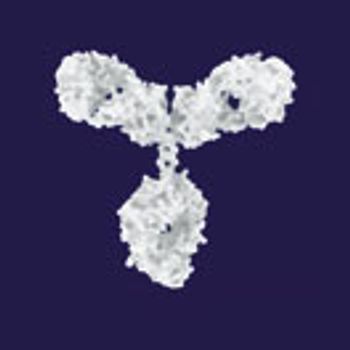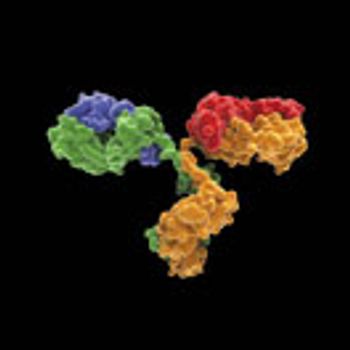
The agency has recommended marketing authorization for Ibrance in the European Union.

The agency has recommended marketing authorization for Ibrance in the European Union.

Results of Phase III trials involving AbbVie’s blockbuster drug Humira (adalimumab) for the treatment of noninfectious uveitis were released on Sept 7, 2016. FDA approved the drug for noninfectious intermediate, posterior, and panuveitis in June 2016, bringing Humira’s list of approved US indications to 10.

This study offers a strategy for stabilization of biotherapeutics for long-term frozen storage in PBS-based formulations.

In Phase Ib trials, Biogen’s aducanumab reduced amyloid-beta in the brains of patients with Alzheimer’s disease.

Sandoz won FDA approval for its biosimilar version of Enbrel.

The cyclin dependent kinase inhibitor received Breakthrough Therapy Designation as a first line treatment for advanced breast cancer.

The study demonstrates a systematic approach to stabilize PBS-formulated mAbs against freeze-thaw degradation.

Amgen discussed the drug-delivery approaches to two of its biologics in a recent second-quarter earnings call.

The move follows a warning from FDA wherein FDA cited ALK-Abello with numerous manufacturing violations.

The mAb, in combination with lenalidomide and dexamethasone, or bortezomib and dexamethasone, was granted a Breakthrough Therapy Designation from FDA for the treatment of multiple myeloma.

The companies filed a BLA for romosozumab, an investigational monoclonal antibody for the treatment of osteoporosis.

The agency will review Mylan and Biocon’s biosimilar to pegfilgrastim.

Amgen and Allergan’s biosimilar to popular breast cancer drug Herceptin is comparable to the innovator molecule, Amgen recently announced.

The committee voted unanimously in favor of approving the drug, but the majority supported implementing additional risk management.

The antisense drug will be the first in the companies’ joint development deal for medications to treat autoimmune disorders of the gastrointestinal tract.

FDA said in briefing documents ahead of a July 13, 2016 meeting that Sandoz’s biosimilar GP2015 has “no clinically meaningful differences” with the US-licensed and EU-licensed versions of Enbrel (etanercept) in terms of safety, purity, and potency.

The acquisition will give Bristol-Myers Squibb full rights to Cormorant’s HuMax-IL8 antibody program.

The drug received breakthrough therapy and orphan drug designation as a monotherapy for the treatment of chronic graft-versus-host-disease.

The monoclonal antibody for the treatment of two forms of multiple sclerosis has a target action date of December 28, 2016.

Emergent is seeking approval for the manufacture of BioThrax at the company’s large-scale manufacturing facility.

A new indication for Emergent BioSolutions’ BioThrax will give the drug market exclusivity through November 2022.

Keytruda was shown to be superior to chemotherapy in the treatment of patients with non-small cell lung cancer.

In Phase III clinical trials, ixekizumab showed to be superior to etanercept and placebo in treating moderate-to-severe plaque psoriasis.

J&J’s Darzalex, in combination with two older drugs, was found to significantly extend progression-free survival in patients with relapsed refractory multiple myeloma.

New research presented at the American Society of Clinical Oncology meeting demonstrates that atezolizumab could be a promising first-line therapy for the treatment of bladder cancer in cisplatin-ineligible patients.